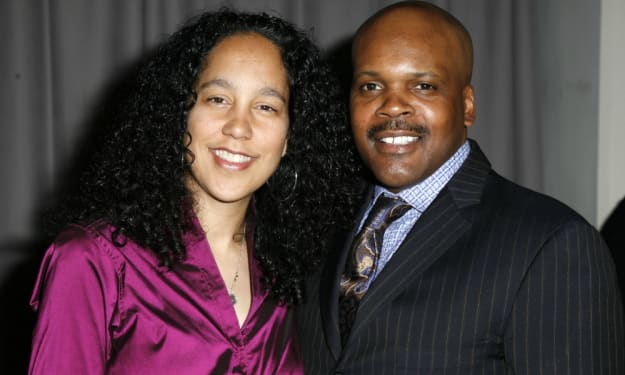
What is dialogue?
Everyone knows what dialogue is. It's two people talking and engaging in a conversation. The question then becomes, what is dialogue in the context of a screenplay?
Conversation Vs. Dialogue
Conversations are interesting. Everybody has them and most people know they can go in different directions in a matter of seconds. The conversations can go from positive to negative, happy to sad, and indifferent to excited. The possibilities are endless. In a conversation, we have the freedom to take the conversation anywhere we want it to go. However, in a screenplay, the rules are completely different.
Let's say we are creating a scene where a woman suspects her husband is cheating on her and is digging for information to catch him in a lie. A potentially explosive scene right? Yes, but we have to make sure that our dialogue focuses on the goal of each character, unlike a regular conversation in real life where people can lose track of the original topic and go in a completely different direction.
The Example
So, how do we construct that scene? First, we must figure out what the conflict is. The conflict, in this case, would be a husband suspected of infidelity. We would also have to identify the wife's goal for this particular scene, which is to get some answers. How would she go about this?
First, she might snoop in his room, check his wallet, and (these days) social media for concrete evidence. Let's assume she finds something. This is where your creativity can shine through. She might find anything like a woman's earring, lipstick smudged on their bedroom pillows or a telltale sign that cheating was indeed taking place.
The Showdown
Finally, the moment of truth. The wife confronts the husband, but this is a screenplay, which means, she has to try to catch him in a lie without actually accusing him.
Instead of creating a scene where the wife does the obvious (i.e. yelling, screaming, cussing, nagging, or threatening to leave), it would create more dramatic tension by keeping her calm and nonchalant. She might ask him a seemingly harmless question like, "Babe, whose earrings are these?" That question may sound harmless enough but to an unfaithful husband, the sight of that earring would nearly send him into cardiac arrest. His secret is dangerously close to being exposed and he knows it.
The wife would then probe him some more without being too confrontational. She would say, "Are you sure? These don't look like mine." The husband is definitely sweating at this point and is trying to come up with all kinds of excuses to change the subject, which creates more excitement for the viewer.
Remember, this type of art form is meant for the screen, so it is important to always keep people on the edge of their seats in anticipation for what might happen next.
Why Conversational Scenes Are Death to Screenplays
I know. This sounds extreme, right? Of course, but it's the truth. If scenes were conversational instead of lyrical and non-predictable, the audience could potentially get bored or worse, they would be able to foresee the future in your story.
The viewer does not want to be the smartest person in the room while watching a TV show or a movie. The viewer wants to be taken on a journey. They want to be consumed by the story and, most of all, they want to be surprised with the outcome. They don't want to be able to predict every twist and turn because it would take all the fun out of the adventure.
Overall, writing screenplay dialogue is fun and challenging at the same time. The trick is to not overthink it and to know your characters well enough to capture how they would behave or react in any situation.
About the Creator
Jessica Tanner
Hi, there! I'm Jessica and here to share my love of TV, Movies, Screenplays, and Creativity.






Comments
There are no comments for this story
Be the first to respond and start the conversation.